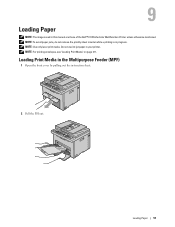

- #How to make my dell c1765 not deep sleep how to#
- #How to make my dell c1765 not deep sleep driver#
- #How to make my dell c1765 not deep sleep software#

On your computer find the device manager settings in your control panel.Ģ.It’s highly likely that in a few days or even a week you’ll experience the same issue again! Here’s what to do: If you’re just looking to quickly get your printer back online again to finish a print job then there is a quick fix that will do the trick, But a word of warning…. Network information is missing in the printer settings / incorrect i.p address.
#How to make my dell c1765 not deep sleep software#

#How to make my dell c1765 not deep sleep driver#
There are several possible causes for your ‘Dell printer offline’ message such as the computer software being updated, a connection issue between the hardware of the printer and PC (including cables or Wi-Fi hardware), the printer may need firmware updates, or the printer driver on the PC needs an update.
#How to make my dell c1765 not deep sleep how to#
How to fix the dell printer down issue.How to quickly get your Dell printer online.What causes the Dell printer to not work?.Here’s what you’ll learn from this article: If you’re at the end of your tether and ready to throw your printer out of the window through sheer frustration, there is something you can do to fix this common Dell printer issue before you release the beast! So, step away from the printer for a few minutes, take a nice deep breath and read on… Indeed, insomnia is considered by many sleep studies to be the key risk factor that determines whether a person suffering with post-traumatic stress disorder or major depression will experience suicidal thoughts.Are you constantly asking yourself, why is my dell printer offline? It is unsurprising, therefore, that Denise Pope reports that insomnia in adolescents increases risk-taking behaviour and impulsivity – this would include the impulse to act on suicidal thoughts. Clinical research shows that depriving someone of REM sleep leaves the amygdala 60% more reactive to emotionally charged events. However, if insomnia and nightmares prevent REM sleep from doing the job of reducing cortisol stress hormones and calming emotions from the previous day, the brain’s security officer, the amygdala, is left in a heightened state of arousal. If intense dreaming continues throughout the night, the person wakes up feeling exhausted and lacking in motivation, which researchers – and those who have experienced it – know to be the sleep pattern that characterises depression.

It has long been known that worrying and stress increase the intensity of REM sleep, when most dreaming occurs, causing it to start earlier on in the night and reducing the deep sleep needed to repair the brain and body. Regarding your article “ Is sleep a ‘magic pill’ for teen wellness in a mental health crisis?” (8 June), sleep research tells us that good sleep isn’t just about getting enough – the right quality of sleep is key.


 0 kommentar(er)
0 kommentar(er)
